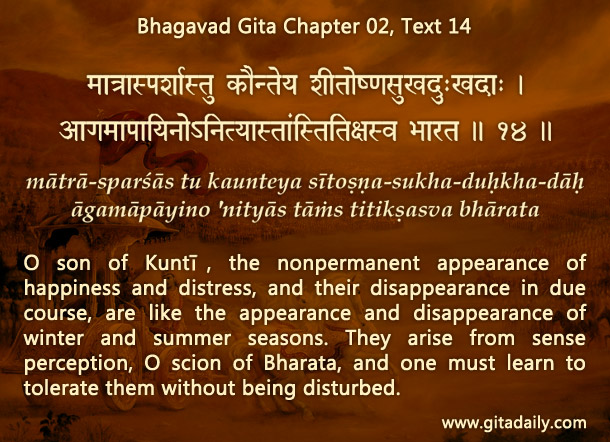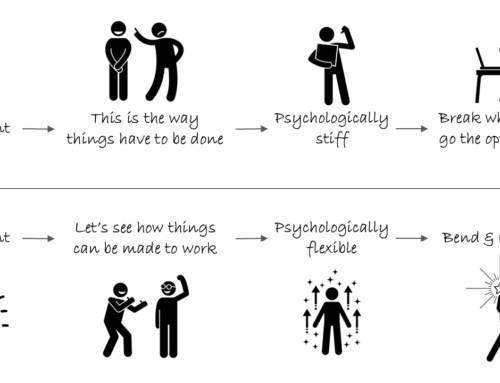Suppose we plan to go for a picnic, but suddenly get fever and have to abandon our plan. And we lie on a bed resenting the sickness that has deprived us of an enjoyable outing. If the fever is being treated and is under control, then it doesn’t hurt us much; it just renders us physically weak. But our resentment can hurt much more – it can cause agonizing mental paralysis, locking us in a chain of thoughts that aggravate our negativity and misery.
To avoid such self-hurting resentment, we need to dwell not on what we are missing but on what is still available. Unfortunately, if our worldview is materialistic, we reduce reality to material reality. So, we often see the loss of material pleasure as loss of all pleasure.
Countering such misperception, Gita wisdom introduces us to a higher ever-available reality – spiritual reality. The Bhagavad-gita (02.13) informs us about our spiritual side, then (02.14) urges us to tolerate worldly dualities. This sequence suggests that knowledge about the spiritual can foster endurance of the material. When we understand that we belong to a higher reality that is never affected by material upheavals, that knowledge opens for our thoughts an option better than stewing over unpalatable material reality.
And the practice of yoga, especially bhakti-yoga, enables us to easily experience the spiritual – not just our spiritual identity, but also the shelter of the supreme spiritual reality, Krishna. Remembrance of Krishna becomes increasingly relishable as we raise our consciousness to the spiritual level by steady bhakti practice. Thankfully, we can remember him even at our present level of consciousness with the aid of his many merciful manifestations such as holy names and scriptures. By focusing on these manifestations, we can experience spiritual reality, cast off resentment of material reality and face life’s problems gracefully.
To know more about this verse, please click on the image
Explanation of article:
Podcast:



Leave A Comment